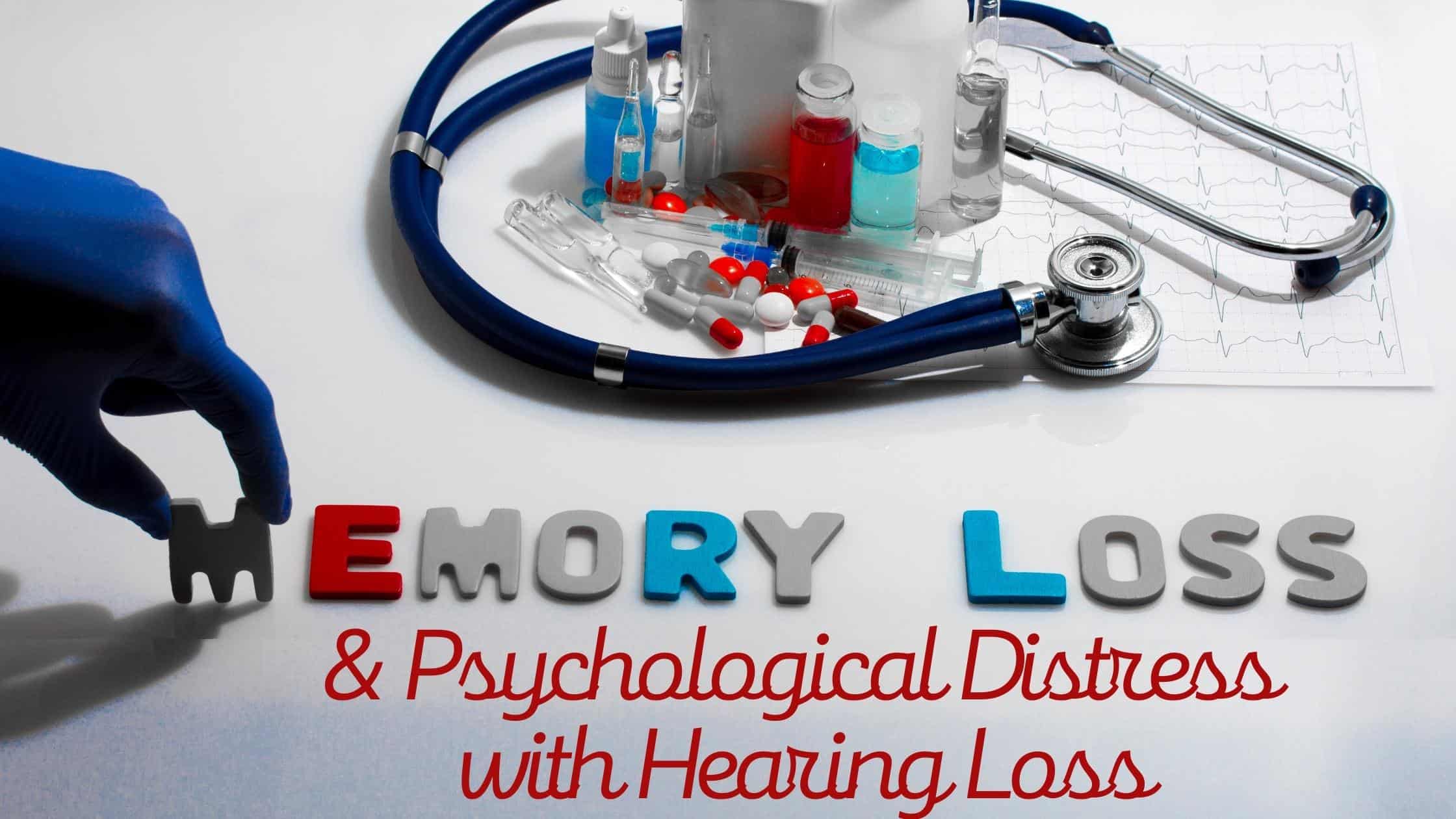
The effects of hearing loss go beyond hearing capacity. In addition to impacting hearing health, hearing loss can take a toll on other aspects of a person’s life. Recent research has highlighted that untreated hearing loss can contribute to memory loss and psychological distress. To further understand and effectively treat hearing loss, it is important to be aware of the ways in which it shapes daily life.
Research Linking Hearing Loss, Memory Loss, & Psychological Distress
Recent research has established a link between hearing loss, memory loss, and psychological distress. A 2019 study conducted by researchers in Japan investigated the ways in which hearing loss contributes to the development of other conditions. The study involved analyzing data from 137,723 people, ages 65 and older who did not have dementia. Participants completed a questionnaire (part of a national survey) self-reporting hearing loss. 9% of the respondents had hearing loss and researchers compared their experience of memory loss and psychological distress with that of people without hearing loss.
The findings include that for people with hearing loss:
- 39.7% also reported psychological distress compared to 19.3% of people without hearing loss
- 37.7% reported having memory loss issues compared to 5.2% of people without hearing loss
These significant findings highlight that hearing loss significantly contributes to psychological distress and memory loss. It is critical to understand just how hearing loss can have such far reaching effects on one’s life.
Impact of Hearing Loss on Mental Health
Remarking on this strong correlation, they study’s co-author Yoko Kobayashi remarked, “hearing loss takes an enormous toll on older people in so many ways, physically and mentally, while limiting activities of daily living”. There are a few major ways that hearing loss produces this kind of toll including:
- Strained Communication: hearing loss reduces a person’s ability to absorb and process sound which creates a range of symptoms that can profoundly strain communication. This includes muffled sounds, tinnitus (buzzing or ringing noise in the ears), unable to distinguish words etc. These symptoms often lead people to asking others to repeat themselves, speak loudly and/or slowly, needing to move to quieter areas etc. This experience makes it difficult to engage in conversations and can contribute to miscommunication, missing details, and frustrate everyone involved.
- Social Withdrawal: strained communication can make conversations unpleasant, often causing people to avoid social interaction altogether. People with untreated hearing loss can avoid social settings, events, and activities which results in spending less time with family and friends. This kind of isolation impacts mental health and well-being.
- Cognitive Health Decline: social withdrawal contributes to loneliness, stress, anxiety, depression etc. which impacts how people feel on a daily basis. Less interaction also means reduced opportunities for the brain and body to be energized which can impact cognitive health. Untreated hearing loss increases the risk of cognitive decline, memory loss being a common symptom.
The most effective way to address the impact hearing loss has on cognitive and mental health is to seek treatment. Treating hearing loss significantly alleviates symptoms and improves health outcomes.
Seeking Treatment
Fortunately, addressing hearing loss is relatively simple. The first step is to schedule an appointment for a hearing test. Conducted by our team of hearing professionals, our hearing tests involve a noninvasive and painless process that measures hearing ability in both ears. This identifies any impairment as well as the degree of hearing loss you may be experiencing. Once a diagnosis is established, we will work with you on treatment options to best meet your hearing needs.
The most common treatment for hearing loss is hearing aids. These are small, electronic devices that are designed to absorb, amplify, and process sound from the environment you are in. This support increases hearing ability which has numerous positive outcomes. Being able to hear clearly allows people to participate in and navigate daily life with greater ease, comfort, and control.
People can fully enjoy the activities, company, and conversations that make life dynamic. This improves relationships, job performance, and general wellness. Treating hearing loss also decreases the risk of developing other conditions, improves cognitive function, and enhances the overall quality of life!
